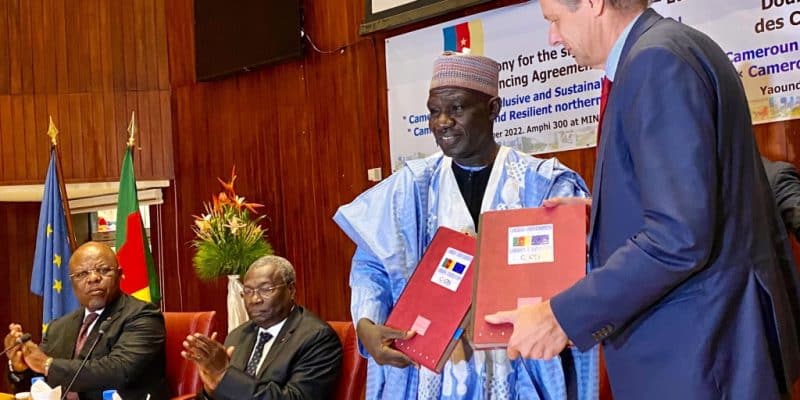Cameroon has been allocated 29 billion CFA francs (€44 million) for the implementation of two sustainable development projects in the Centre, Littoral and Far North regions. This funding allocated by the European Union (EU) will ultimately improve the living conditions of populations affected by the effects of climate change.
The European Union (EU) wants to support climate resilience in Cameroon. It is within this framework that the two partners recently signed two agreements worth a total of 29 billion CFA francs (44 million euros) for the implementation of the projects “Cameroon: green, inclusive and sustainable cities” and “Cameroon: green and resilient north”.
The first project, financed by the EU to the tune of 15.7 billion CFA francs (about 24 million euros), targets the cities of Douala (in the Littoral region), Maroua (Far North) and Yaoundé (Centre). In the Cameroonian capital, it will enable the development of sustainable mobility to reduce atmospheric pollution through the implementation of a Bus Rapid Transit (BRT). In Douala and Maroua, the “Cameroon: Green, Inclusive and Sustainable Cities” initiative aims to develop green spaces and strengthen the waste management system in the municipalities in order to limit the impact of global warming.
The second project, “Cameroon: Green and Resilient North”, aims to strengthen the climate adaptation of agro-pastoral activities, particularly livestock, crafts and fishing, around the cities of Maroua, Garoua (in the North region) and Ngaoundéré (in Adamaoua). These northern areas are affected by drought, which affects the livelihoods of the population. At a total cost of 13 billion CFA francs (19.8 million euros), the project will eventually protect the national parks of the Faro-Benoué-Bouba Ndjida corridor.
Read also- CAMEROON: In Campo, Camvert promises conservation of marine turtles
According to the head of the EU delegation in Cameroon, these two agreements will contribute to the implementation of the United Nations Sustainable Development Goals (SDGs) in this Central African country, with the creation of jobs in the field of agro-ecology as well as the protection of nature. “This is an inclusive and integrated approach combining biodiversity conservation and socio-economic development. This will support Cameroon’s National Development Strategy 2020-2030 (NDS 2030),” says Philippe Van Damme.
Benoit-Ivan Wansi







